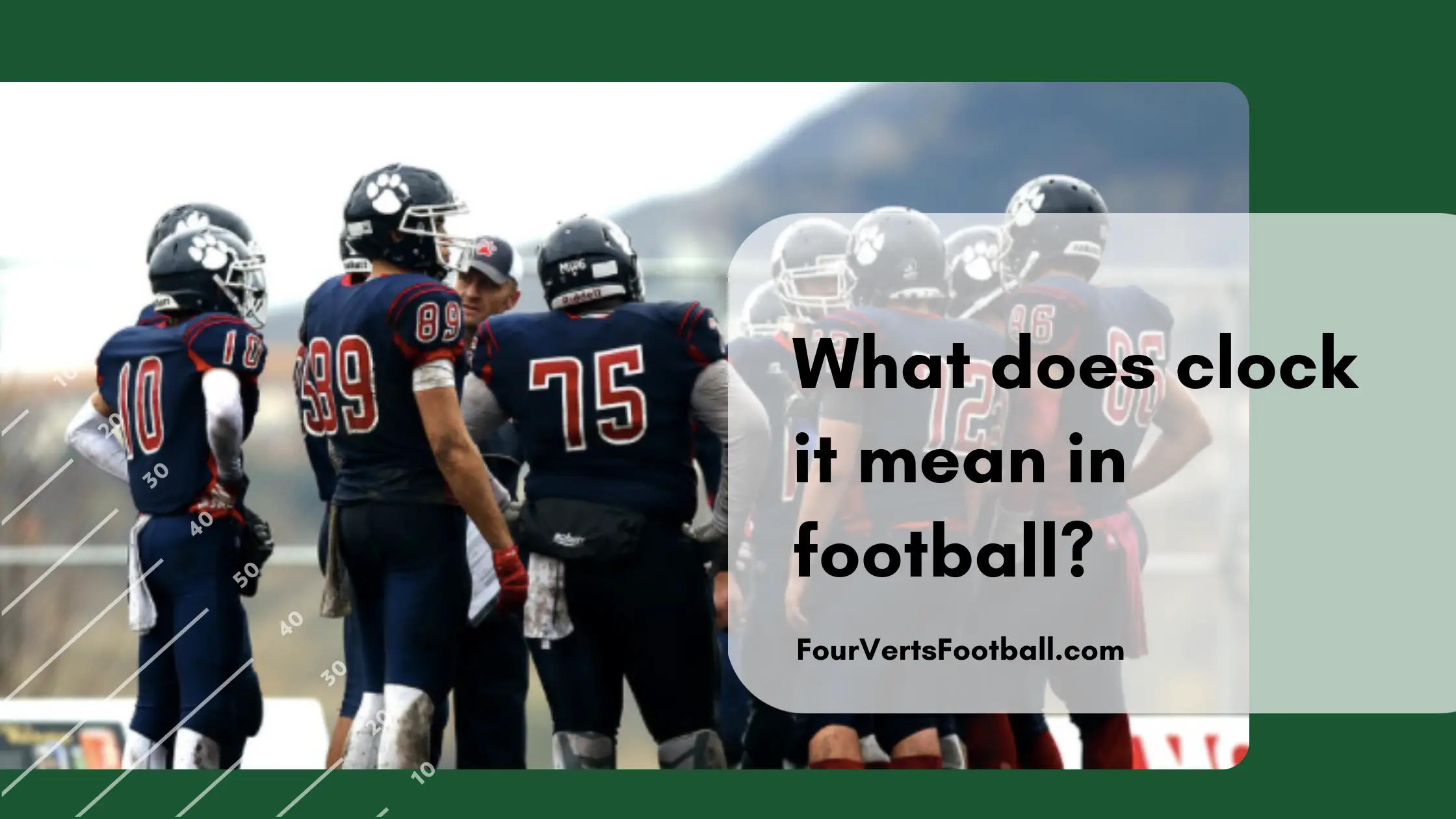In the game of football the term clock it refers to spiking the football in order to stop the game clock.
When a player is tackled in the field of play in football the clock will continue to run. When looking to stop the clock in football there are a few ways to do it.
A timeout called by a player or coach will stop the clock, though each team only has three timeouts per half so they are only able to do this a limited number of times.
A team can also stop the clock by having the ball carrier run out of bounds with fewer than five minutes remaining in the second half or fewer than two minutes remaining in the first half.
The final way to stop the clock in football is to throw an incomplete pass. Throwing an incomplete pass at any point in the game is going to cause the clock to stop between plays.
This is where spiking the football comes from. When a team is looking to stop the clock quickly but cannot use a timeout they will then opt for spiking the ball.
When spiking the ball the quarterback will snap the ball and then immediately throw it to the ground. This will allow the team to stop the clock with only a second or two burned on the play.
When a quarterback is being told to clock the ball that means they want him to spike it in order to stop the clock.
When would a team clock it in football?
Now that you understand what the term clock it means in football you may be wondering when exactly this play is going to be used.
After all, when clocking the football a team is going to be giving up a down and gaining zero yards on the play.
After a big gain during the two minute drill
One situation in which a quarterback may spike the ball to stop the clock occurs in the two-minute drill.
The two-minute drill refers to a situation in which a team attempts to march the ball down the field with two or fewer minutes remaining in the half.
During these situations, time plays a major role. A team cannot work their way down the field via short passes and runs as this will run down the clock.
Instead, the team must focus on longer passes and routes near the sideline.
Oftentimes teams will have used up their timeouts earlier in the half meaning incomplete passes and players going out of bounds are the only way to stop the clock.
When a big gain is made in bounds it is common for the quarterback to run to the line of scrimmage and clock the ball.
One reason this often happens on big plays is because of the time it would take for all the players to get into position and prepare for the next play. By spiking it players are able to simply get into position and wait for the clock to be stopped.
Additionally, after a big gain, a team is going to earn themselves a first down. This way when they clock the ball they will still have several downs left to reach the first down marker.
These sorts of tactics to stop the game clock make NFL games last a lot longer.
Late game field goal
Another situation in which clocking the ball comes into play is when attempting a last-second field goal. Similar to the situation above teams will often be out of timeouts late into a game.
In these situations, they will have to find an alternative way to stop the clock to get their field goal unit onto the field.
If this is not done via the ball carrier travelling out of bounds the only other option is clocking the ball.
This is why you will often see quarterbacks running down the field quickly to spike the ball to set up a last-second field goal.
That’s all on the term clock it in football learn some other football terms like on the clock or clock management in football.

